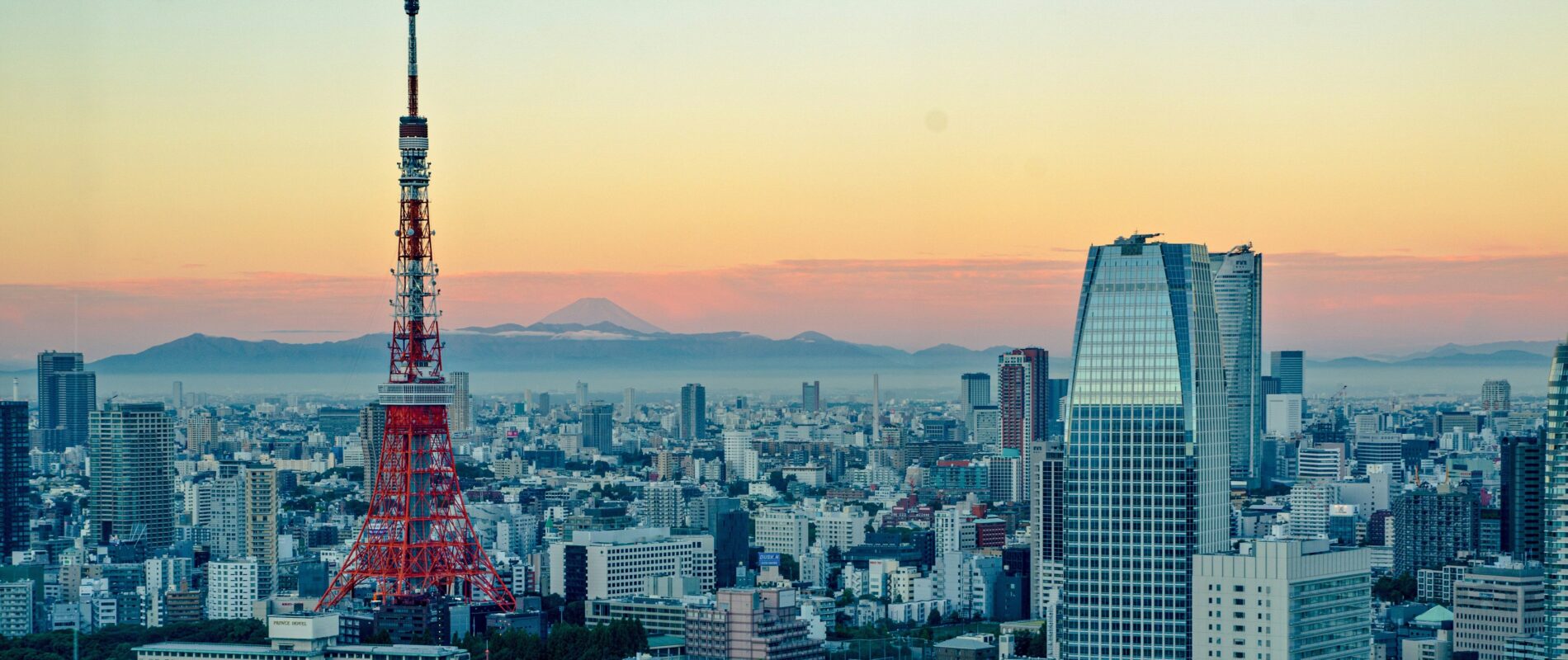Hi, can you please introduce yourself?
My name is Kanda, I’m 32. I applied for my Working Holiday Visa (WHV) at the age of 31 in August 2023. I left for Japan on May 23, 2024. I studied graphic design. I had been working in a nursing home in France for over eight years as a care assistant. My life felt like it was going nowhere: no partner, no kids, no permanent job (just rolling short-term contracts). I was completely free. Then a big car accident that nearly killed me forced me to face my regrets in life: not going on a working holiday in Japan.
I’m Laotian by birth, adopted, and I don’t speak a word of Japanese. My English is a bit shaky too.
Why did you choose Japan for your WHV?
I grew up surrounded by Japanese culture, especially through anime that aired on TV. When I started middle school, I was bullied a lot. I took refuge in manga, cosplay, anime, fashion, and in Japanese culture in general.
How did your move to Japan go?
I had been planning this for months. By January, I was already searching for housing in Tokyo. My budget was around €500/month, and I found a 10m² room in a share house in the Asakusa neighourhood, which is a great location.
The room became available on May 25, right after I arrived. I spent the first night in a hotel near Sensō-ji temple because I wanted to see it lit up at night, since I knew jet lag would keep me up. The check-in and house tour took about an hour and a half. I have a fridge, bed, and desk, and I had already mapped out stores within a 10-minute walk for anything I’d need.
Within the first two weeks, I handled the important paperwork: city hall registration, local phone number, and bank account. City hall took the longest (2 hours), the SIM card 30 minutes. As for Japan Post Bank, I went on a Monday to book an appointment, opened the account Tuesday, and received my card about two weeks later.
You’re currently working in Tokyo. How did you find your part-time job? Was the job search difficult?
I found my job by talking to people at Bonjour Tokyo Bar (a French bar in the Komagome neighborhood). At first, I was using Craigslist, Daijob, and similar sites. But another WHVer I met there told me about Yolo Japan. That’s how I landed my part-time gig at a guesthouse just 10 minutes from where I live.
Honestly, finding work felt easier than in France. I started looking in mid-June and began working on Monday, July 8. I had my interview on a Monday, got hired by Thursday, and they wanted me to start that weekend. But since I already had non-refundable tickets to a cosplay event, I started the following Monday, one week after the interview.
Can you tell us a bit about your job?
It’s going really well! I work as a cleaning staff, which is similar to what I did at the nursing home. It’s probably one of the reasons they hired me. It might sound weird but I actually enjoy cleaning. The vibe is really good, which is why I chose to stick with this job rather than look for something full-time that might’ve paid better.
Most of the staff are other WHV holders or students and they’re used to working with foreigners. The front desk team all speak English.
Have you had other work experiences in Japan?
Yes! I did some pet-sitting and spent two days guiding a group of tourists around Tokyo. I almost did some modeling but I applied to agencies too late (in December). I was hesitant to model because there are people like me everywhere, and many are prettier or cuter. One agency did reply, but the interview was scheduled for mid-January while I was traveling in the south so I ended up turning it down. The contracts are usually last-minute, and since my guesthouse schedules are set a month in advance, the unpredictability just didn’t make sense for me.
People often say Japan is expensive. Between your job and your savings, how are you managing financially?
I actually tracked all my grocery receipts for a month. I’m petite and don’t have a big appetite, so I spend about €250/month on food. My part-time job covers just my rent. If I were working full-time, I’d be totally fine. Luckily, I had €10,000 in savings.
The real challenge is resisting all the themed cafés, pop-up shops, and exclusive merch. I’m into a lot of anime and manga, and it’s hard not to splurge.
Have you been able to meet people easily?
I’m naturally a solitary person. I don’t go out of my way to socialize, which is why a WHV really suits me. But a WHV can be tough if you fear loneliness. Bonjour Tokyo Bar and my share house helped me meet a few people.
Cosplay events too. I mostly met English speakers because of the language barrier with Japanese people (they’ll happily share their social media handles but rarely go beyond that).
I also knew one person before arriving, a Swiss woman married to a Japanese man, who had offered to help me out. I preferred to try on my own first, so I didn’t need to call her.
Have you faced any challenges during your WHV?
Not really. Once I started my job, I quickly found my rhythm. Life here is calmer and more peaceful than in France. I needed independence. In France, without a permanent contract, I couldn’t rent an apartment, so I was still living with my parents. My mom’s emotional dependence on me had become overwhelming.
The hardest part was family pressure. My mom called every day to ask what I was doing, even when the answer was, “Nothing, just resting or walking around enjoying life.”
My cousin, who’s very close to my mom (maybe even more so than I am), works at the same nursing home I used to. She would message me on Instagram the names of residents who passed away. But being 10,000 km away and alone, that kind of thing really affected me. So I had to stop replying and remove her from my followers.
I needed good vibes for my WHV. I’m in a country I love, living my best life, so I don’t allow myself to complain. It’s not that I don’t care about what’s happening back home, but I left for a reason.
What do you love most about your life in Japan?
The freedom! I live right in Asakusa, so even when I have no money left on my transit card, I can still walk to so many great spots: Sensō-ji, Ueno, Akihabara etc… all within 30 minutes.
Also, the safety. I can walk home alone at night without worrying. A few men have approached me, but they were never pushy.
I’m truly living day to day now. Back home, I had become a spectator of my own life with no direction or purpose.
Can you tell us about your experience doing cosplay in Japan?
I’ve been cosplaying for 18 years. I started at 14 during my years of being bullied to try to build confidence. And it kind of worked!
Cosplay brings together a ton of creative hobbies: sewing (though not as much in Japan; people tend to buy ready-made), wig styling, makeup, etc. While cosplay is huge in Japan, it actually originated in the US, and the way it’s practiced here is very different from Europe and North America.
Japan is seen as the cosplay country, but it also has the strictest rules. Many guides still falsely claim people wear cosplay in the street. That’s only partly true. You can cosplay in certain neighborhoods like Ikebukuro, but only during specific events (often run by acosta!). There are designated zones, and some shops or restaurants may refuse entry. You’re not allowed to show up in costume; you change and do makeup on-site. When you buy an event ticket, it includes changing rooms and lockers. You change back into normal clothes afterward.
Japan also has amazing photo studios for both modeling and cosplay, with a wide range of setups. I’ve tried some as both a cosplayer and photographer.
You’ve traveled around Japan. Any place or experience that stood out to you?
Every city has its own charm. Before my WHV, I had already visited Japan twice. I even went up to Sendai. During my trip to the south, I went all the way to Fukuoka by bus, stopping in Nagoya, Kobe, Hiroshima, Miyajima, and Fukuoka.
One city that really struck me was Hiroshima for its deep historical weight. The entire city bears the scars of August 6, 1945. You’ll find monuments showing pre-bomb buildings, what they were used for, and how close they were to the hypocenter. The Peace Park, in the heart of the city, is hauntingly quiet, like the bomb didn’t just take lives but swallowed the future too. It’s heartbreaking and should never be forgotten.
Your WHV is almost over. What’s next?
Honestly, I’m not sure. I’ll probably do temp work at the nursing home again, but I’d like to land a permanent job so I can finally move out and plan for my future.
Before I left, I had the idea (still in the works) of opening themed photo studios in France inspired by the ones in Japan. I’ve also reached out to some conventions to speak on panels about the Japan WHV and cosplay in Japan.
Any advice for future WHV travelers in Japan?
Live with no regrets. If you never try, you’ll never know! No one’s going to blame you if you decide to end your working holiday early. Every experience is worth something.
You can consider advice from other WHVers, but remember that your working holiday is your own. And you only live once!












 Français
Français English
English




0 comments
{{like.username}}
Loading...
Load more